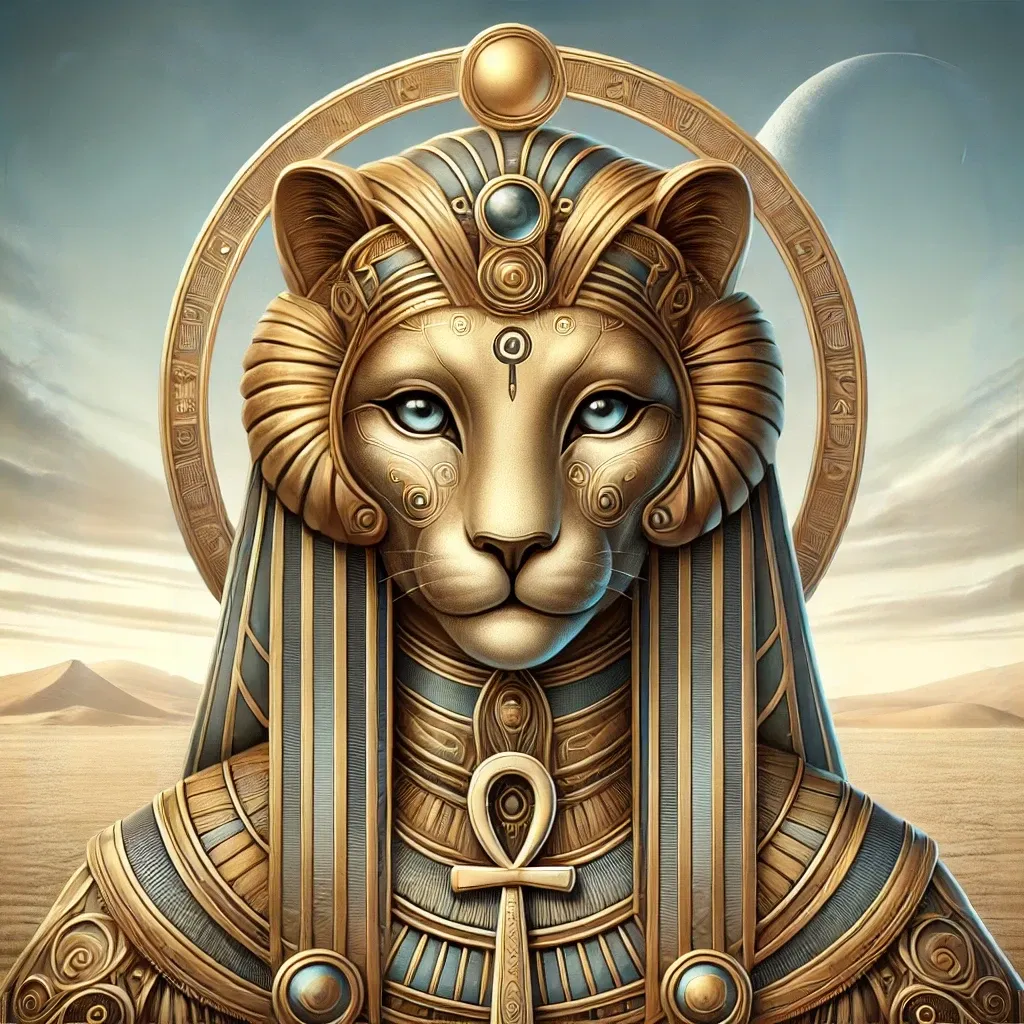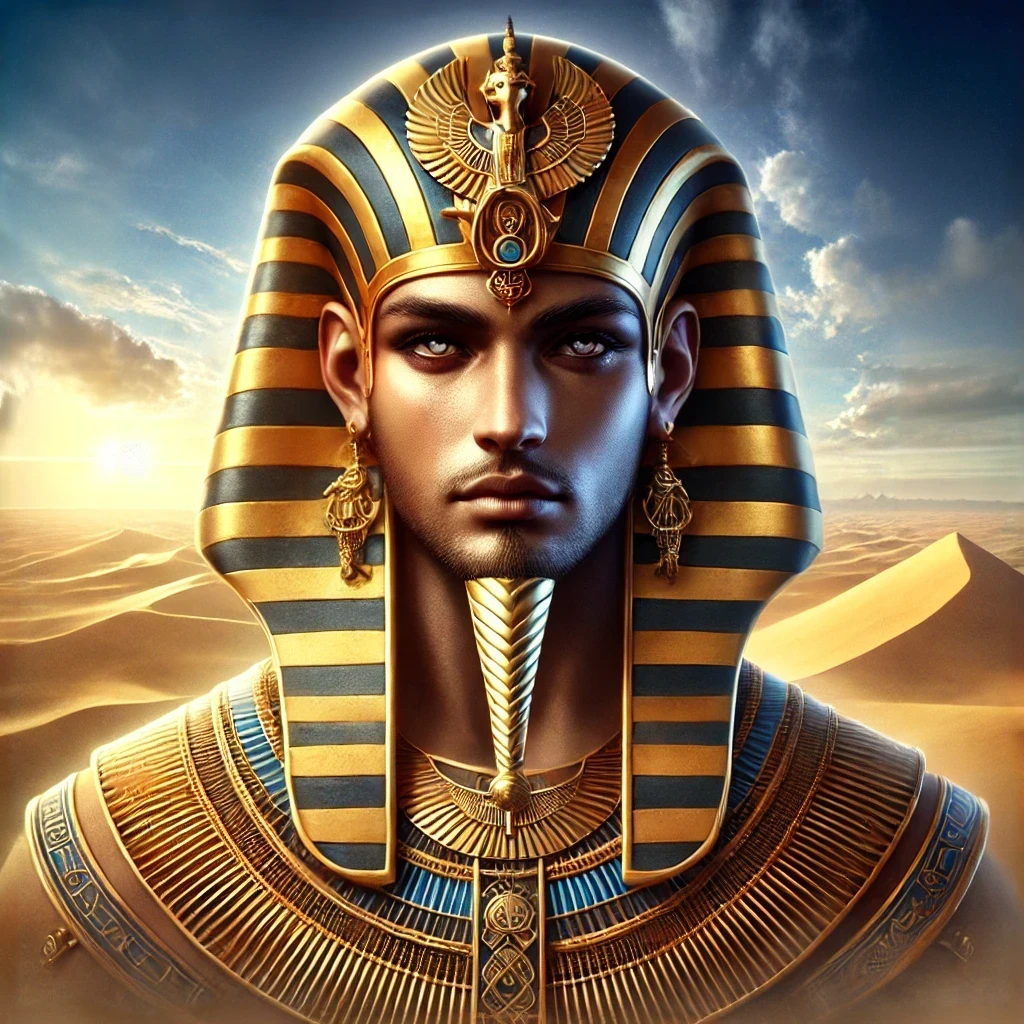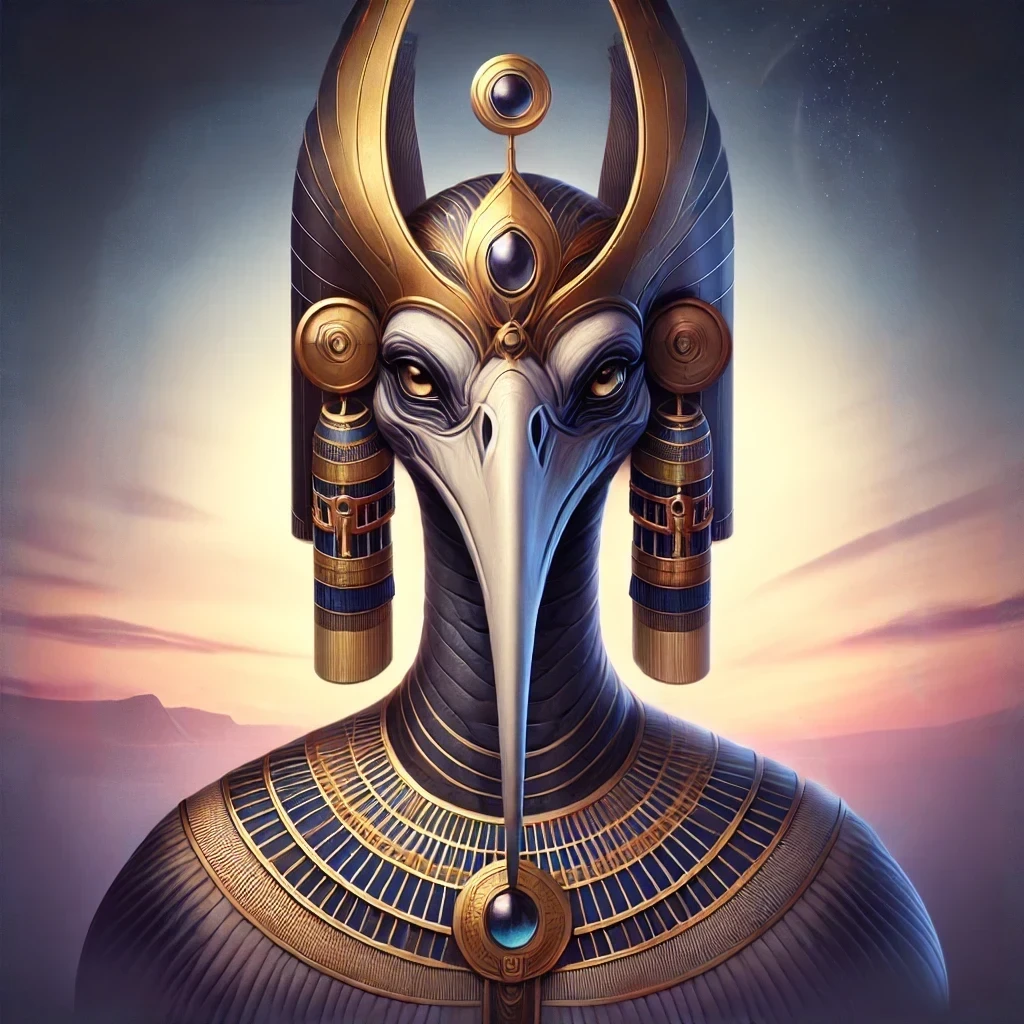Tefnut, represents moisture, rain, and fertility. Known by alternative names such as Tphenis and various epithets including “Mistress of Dew” and “Lady of the Sky,” her name derives from the root “tf,” meaning to spit or to moisten. This etymology reflects her association with water and life-giving sustenance. She holds an essential place in Egyptian cosmology as a force of balance and life, deeply tied to the natural cycles.
Origins
Birth and Creation
Tefnut’s origins trace back to the Heliopolitan cosmogony, where she emerges as one of the first deities created by Atum, the self-generated creator god. According to myth, Atum produced her and her twin brother Shu, the god of air, through an act of divine expulsion—spitting or breathing them into existence. Together, these siblings established the first principles of life: moisture and air, essential for creation.
Role in Egyptian Theology
As a fundamental part of the Ennead of Heliopolis, she embodies moisture, a critical element in sustaining life and maintaining Ma’at, the cosmic order. Her partnership with Shu represents a duality of balance, with her watery essence complementing Shu’s airy domain. This balance was believed to sustain the heavens and the earth.
Appearance
Depictions in Art
Tefnut is often depicted as a lion-headed figure, emphasizing her fierce and protective nature. Her feline form connects her to the sun and its heat, reinforcing her power over rain and moisture to temper the sun’s intensity.
Symbols and Attributes
When portrayed in human form, she commonly wears a solar disk atop her head, encircled by a cobra. This symbol ties her to Ra, the sun god, and underscores her role as a guardian of the natural and divine balance. Her representations often include water motifs, such as flowing lines or droplets.
Abilities
Control Over Water
As the embodiment of moisture, Tefnut wields significant influence over the Nile’s inundation, ensuring the fertility of Egypt’s lands. Her abilities extend to controlling rain, dew, and all forms of water essential for life.
Protective Powers
Her leonine aspect reflects her fierce protective nature. Like a lioness safeguarding her territory, she was believed to shield the cosmos from chaos and drought.
Restoration of Balance
In Egyptian cosmology, she plays a vital role in restoring harmony when disrupted. Myths frequently portray her as a mediator, capable of resolving conflicts among deities or between the natural and divine realms.
Myths
The Distant Goddess
One of the most renowned myths involving Tefnut tells of her departure from Egypt in anger, retreating to Nubia. During her absence, the land suffered from drought and chaos. The gods, desperate to restore balance, sent Thoth to persuade her to return. Transformed into a lioness during her exile, she initially resisted but eventually returned, bringing life-giving moisture back to the land.
The Creation of Ma’at
In collaboration with Shu, she helped establish the pillars of Ma’at. This tale highlights her role as a foundational force in Egyptian theology, emphasizing the interconnectedness of air, moisture, and cosmic balance.
Symbolism
Objects and Icons
Tefnut’s symbols include the lioness, reflecting her ferocity and protective instincts, and the ankh, representing life and vitality. Water droplets or flowing lines often appear in her iconography, emphasizing her dominion over moisture.
Animals and Plants
The lion and lioness are sacred to her, symbolizing strength and guardianship. She is also associated with aquatic plants like papyrus, which thrive in the moist environment she governs.
Minerals
Gold, linked to the sun, occasionally symbolizes her connection to Ra, while turquoise represents the lushness and vitality she brings.
Relationships
Shu, the Twin Brother
As her twin and consort, Shu forms the other half of a crucial cosmic pair. Together, they birthed Geb, the earth god, and Nut, the sky goddess, laying the foundation for the next generation of deities.
Ra, the Sun God
Tefnut’s connection to Ra is both symbolic and functional. She serves as a protector of his journey across the sky, ensuring balance between the sun’s heat and life-giving moisture.
Offspring and Legacy
Her children, Geb and Nut, symbolize earth and sky. Through them, she indirectly influences the cycle of life and death, as well as the structure of the divine order.
Trivia
- In some versions of the Egyptian pantheon, Tefnut’s leonine aspect aligns her with Sekhmet, another fierce solar goddess.
- Her worship extended beyond Egypt, influencing Nubian beliefs where she was revered as a rain-bringer.
- Ancient priests performed rituals invoking her favor during droughts, believing her return would ensure prosperity.
- Depictions of her in temples often include inscriptions emphasizing her dual nature as both nurturing and fearsome.
- Her mythological retreat to Nubia symbolizes the seasonal ebb and flow of the Nile’s waters, vital for Egyptian agriculture.



